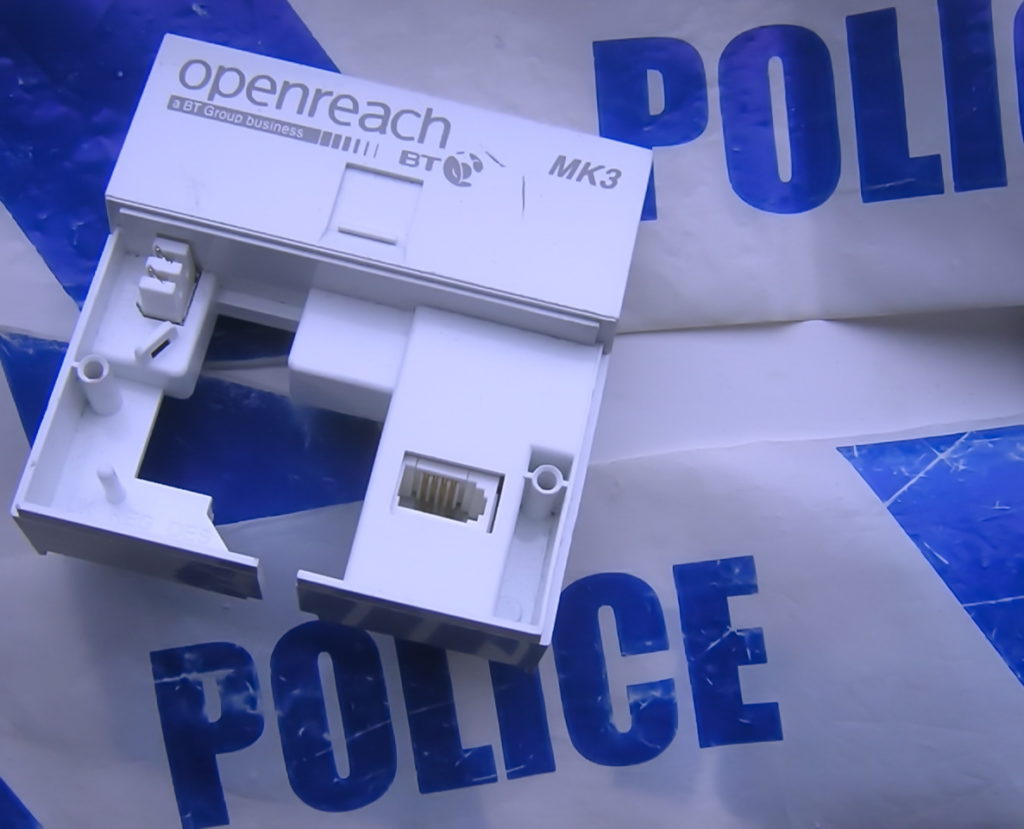Moving your master socket seems to be a very hot topic for our blog readers.
It’s actually a kind of “yes, but no” topic, rather than a straight answer. My simple opinion as a local telephone engineer is:-
“Yes you can (unofficially)”
…but also…
“No you shouldn’t, unless you do a proper job – bad jobs cause faults. If Openreach have to attend to fix a fault caused by your work, then they will charge you”.
It really is that simple. Openreach are more concerned with keeping folks connected than checking for cabling crime.
However, somewhere along the line,the legend has arisen that you may incur a fine if you do the work yourself. Let me address that issue via some FAQs:-
“Do Openreach Know Where Your Socket Is?”
They don’t have any records, so “No”. A skilled engineer will be able to spot a move, though. However, they attend your house to fix faults, not pass judgement on moving your master socket.
“Will The Openreach Engineer Report Me?”.
Highly unlikely. He or she is far too time-pressured to get the job done and go to the next one. I am not aware of a procedure within Openreach to allow reporting of customer-created wiring errors.. I’ve never heard of crime reporting happening. You should be safe.
“What Might Cause Me To Be Charged?.
By “charged”, I don’t mean in a court of law, by the way. As I’ve explained above, if you move your master socket and cause a fault on the telephone exchange side of the line, then call out Openreach to fix it, they have to charge for their time doing the work. It’s that simple.
“Can I Seriously Damage Openreach’s Equipment By Moving My Master Socket”.
Well, unless you do something utterly crazy like sending a mains voltage back down the line (this has happened),then no. The technology that carries voice and broadband is remarkably rugged. In most cases, the “A” and “B” wires can even be mixed up, and the system will still work. You won’t be thrown in jail for burning your local exchange down.
“How Can I Make Sure It’s Done Properly?”
There’s plenty of information and available parts on-line. And on this blog. Always make sure that any extensions are added after the incoming line reaches the master socket. You could even find an independent local telephone engineer to do the work for you. I may be able to help.
“Can You Give Advice?”
Hmm.. I’m probably a bit too generous with my advice. Giving it for free it does not support my wife’s shopping and craft gin habit, or leave me any pocket money for my permitted half a shandy a week.
Here’s the deal:- if I have the time, I may be able to reply. If I do, would you please consider leaving some kind feedback via Facebook, “Google My Business”, etc? Thanks.
By the way, there’s much more on moving your master socket on our other blogs. Have fun. You should be fine.
